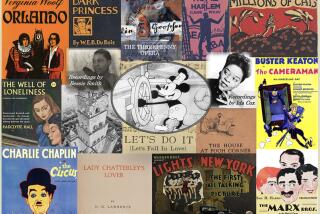Copyright Protection Versus Public Domain
- Share via
“‘Limitless’ Copyright Case Faces High Court Review” (Feb. 20) reported that the plaintiffs in the case of Eldred vs. Ashcroft hope to roll back the current, lengthy copyright protections. Despite what producers and distributors might claim, the end goal of the copyright act was the enrichment of the public domain.
Each generation should have access to our cultural heritage, and creators should have the right to further enrich our culture by producing derivative and interpretive works based upon the works of those who preceded them. At the same time, owners of copyright should have the right to profit from their intellectual property.
I propose a return to the provisions of the Copyright Act of 1976, but with the following modifications: 1) At the termination of the copyright period, the right to make and profit from copies of the original work would remain with the copyright holder, but the right to make derivative works would pass into the public domain; and 2) if the copyright holder failed to make the original work continuously available to the public, the original work would pass into the public domain.
Why grant to anyone the right to deprive the public of much-loved works indefinitely?
Jim Danforth
Reseda
*
Being an amateur musician always in search of written music for my favorite songs, it has been one of my frustrations that so much copyrighted music remains unpublished. When musicians transcribe music and place it on the Internet for others to use, free of charge, the copyright holders immediately threaten legal action.
However, the music remains unpublished and thus unavailable to the public. I would propose that copyrights be treated the same as trademarks. Use them or lose them. If copyright holders sit on a copyright without promoting it, it should revert to the public domain. If the copyright holders actively promote the work, they would retain ownership for their lifetime.
Pat Cochran
Whittier
More to Read
The biggest entertainment stories
Get our big stories about Hollywood, film, television, music, arts, culture and more right in your inbox as soon as they publish.
You may occasionally receive promotional content from the Los Angeles Times.









